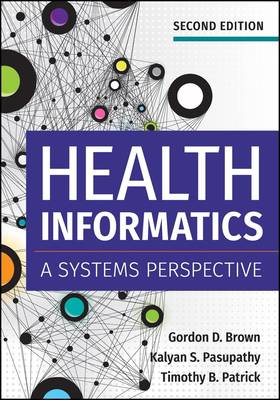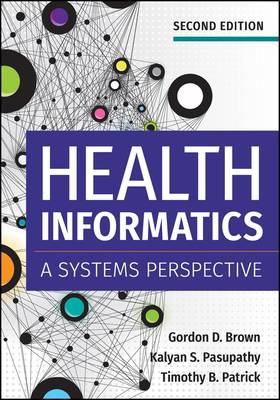
- Retrait gratuit dans votre magasin Club
- 7.000.000 titres dans notre catalogue
- Payer en toute sécurité
- Toujours un magasin près de chez vous
- Retrait gratuit dans votre magasin Club
- 7.000.0000 titres dans notre catalogue
- Payer en toute sécurité
- Toujours un magasin près de chez vous
120,45 €
+ 240 points
Description
Instructor Resources: Authors' responses to the chapter and case study discussion questions; guidance on how the case studies may be used; PowerPoint slides of the exhibits to supplement classroom discussions and lectures; and suggested activities for exploring chapter topics, including data sets. As the reach and influence of technology grow, the world becomes increasingly connected. What happens in one system--finance, manufacturing, research, infrastructure, supply chain, and many more--can have a significant impact on the activities and outcomes in other systems. Healthcare is no exception. Connecting all of these systems is vital in order to properly support clinical care. Health informatics has the potential to align these interlocking systems in a way that transforms clinical decision-making and healthcare delivery to optimize overall system performance. Health Informatics: A Systems Perspective takes a systems approach to leveraging information in healthcare and enhancing providers' capabilities through the use of technology and knowledge transfer. The book offers a conceptual framework for aligning clinical decision processes with system infrastructures, including information technology, organizational design, financing, and evaluation. The book's contributors--all leading academics and healthcare practitioners--balance theoretical viewpoints with practical considerations. Case studies and informative sidebars support theory with real-world applications, while learning objectives, key concepts, and discussion questions facilitate learning and reinforce content. A glossary, which defines the main concepts and key terminologies presented in the text, provides a useful overview of the material. Thoroughly updated and revised, the second edition includes three new chapters on information systems in relation to population health, global health systems, and alternative financial mechanisms and their compatibility with innovative delivery models. Additional topics include: The role of human resources and information technology in healthcareKnowledge-based decision-makingTransforming clinical work processesNursing informaticsPrecision medicineData and information securityAn essential resource for students and practicing managers alike, Health Informatics: A Systems Perspective explains how information technology can enable the transformation of health organizations to improve not only the quality of healthcare, but also the health of individuals and populations.
Spécifications
Parties prenantes
- Auteur(s) :
- Editeur:
Contenu
- Nombre de pages :
- 418
- Langue:
- Anglais
Caractéristiques
- EAN:
- 9781640550056
- Date de parution :
- 01-09-18
- Format:
- Livre relié
- Format numérique:
- Genaaid
- Dimensions :
- 178 mm x 254 mm
- Poids :
- 911 g

Les avis
Nous publions uniquement les avis qui respectent les conditions requises. Consultez nos conditions pour les avis.






